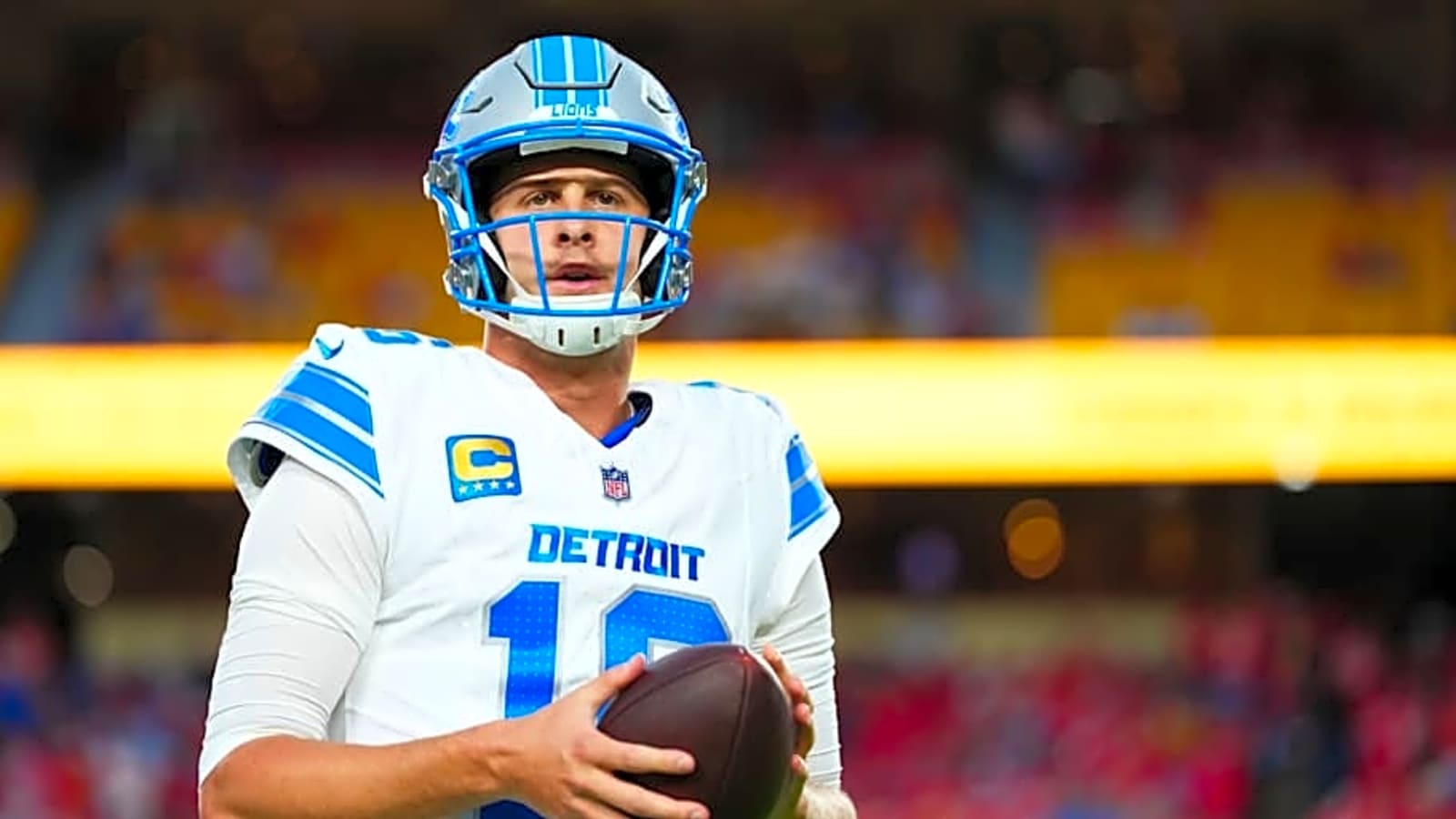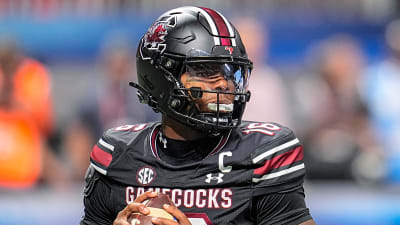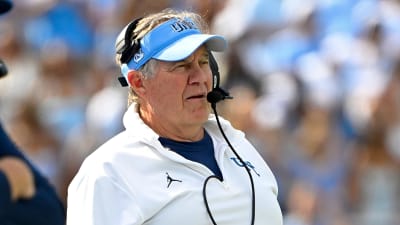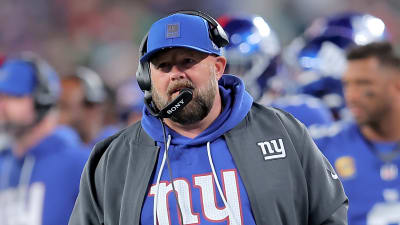
The Detroit Lions' first drive against the Kansas City Chiefs on Sunday Night Football began like a dream. One confusing call to take back a touchdown was just the beginning of what would be a night for the Lions that could only be described as a nightmare.
The Lions matched down to the Chiefs' goal line, doing what they do best: running the ball, complemented by accurate passes from quarterback Jared Goff . On fourth and goal, the Lions went for it, as they typically do. This time, they had a trick up their sleeve. Goff began motioning out, and the ball was directly snapped to running back David Montgomery. Montgomery passed the ball to Goff, who, after bobbling it, gained control of it and reached the endzone.
Jared Goff catches a touchdown pass from David Montgomery pic.twitter.com/fWK6zdMECz
— SM Highlights (@SMHighlights1) October 13, 2025
It wasn't as pretty as his TD reception against the Seattle Seahawks last year during his perfect 18-for-18 game, but it was still incredibly cool. However, the "rule of cool" does not apply to officiating. After a lengthy discussion, the officials determined that Goff's motioning out was illegal. Therefore, Goff was penalized, and the TD was nullified. The Lions would elect to kick the field goal afterward.
This penalty sparked confusion and increased discourse among viewers and players of referee favoritism toward the Chiefs, who finished the game with zero accepted penalties against them. That confusion extended to Goff and head coach Dan Campbell as well.
Goff believed he did everything right on the play
Few were more shocked that Goff's TD was called back than Goff himself. After the game, Goff appeared dejected when asked to explain his side of the play:
Yeah, I got to do a little, I guess, we all got to do a little research on what exactly went wrong. My hands were not under center, and I was set to begin the play. As far as I was concerned, I thought that was the only thing I needed to do. (The officials) were saying that, and I never heard this, that because of how close I was to the center, that then declares me as the quarterback, and then I can't go in motion. I was only under the impression that it was my hands under center. So, that's a new version of that rule I had never heard of, and I think a lot of our coaches had never heard of. And if that is the rule, then I guess we need to do a little more research on that.
READ MORE: Brian Branch might have dug Lions into impossible hole in loss to Chiefs
An argument could be made that Goff tapping center Graham Glasgow before motion could be deemed "under center" or that he wasn't set long enough before the ball was snapped, but both instances feel like enough of a gray area that it raises the question of whether or not it should have been called, especially after a lengthy delay and discussion.
But where the call even came from adds extra layers to the confusion.
Dan Campbell and the Pool Report contradict where the call came from
Goff said he heard from officials that it was due to his proximity to the center that led to the overturning of the TD and the subsequent penalty. What was head coach Dan Campbell told? He explained after the game:
I know (the call to overturn) came from New York, and they said (Goff) never stopped. He stayed in motion. He can't stay in motion.
"New York" refers to the replay assistance crew at the NFL officiating department in Art McNally GameDay Central in New York. That will be important later, but on the surface, it appears Goff was given the impression that it was about where he lined up at the start of the play, while Campbell was given the impression that it was Goff's motioning. Again, both could be true, but it's clear that there was a lack of clarity in the moment.
READ MORE: Jameson Williams proved he can still put up numbers in loss vs. Chiefs
Situations like this are when the postgame pool report can help clear things up, but even that raises more questions. Based on referee Craig Wrolstad's response to reporter Matt Derrick, the issue with the play came down to whether or not Goff was set after motioning. As Wrolstad explained:
Because (Goff) gets out of the view of some of the officials, we had to piece it together as a crew as to whether he stopped initially (at center) and whether he stopped when he went in motion.
From there, it was determined that Goff stopped at the quarterback position, but didn't as a receiver. Wrolstad was asked if Goff had set before the snap if it "would've been a legal play." Wrolstad responded, "That's correct." Wrolstad further elaborated that Goff would've been fine had he been in shotgun formation.
The most interesting line from the interview came later on when Wrolstad said that the call to overturn was internal. Wrolstad said, "We did not have any assistance from Kansas City or New York." This contradicts what Campbell said, as he appeared confident in his declaration that the officials were in communication with the officials in New York, as if he was told as such.
Pool report on the Jared Goff TD penalty pic.twitter.com/DKrJX2yHCR
— Dave Birkett (@davebirkett) October 13, 2025
Given that the officials had to "piece" aspects of the play together, as Wrolstad put it, replay assistance could have come into play. This raises further questions on whether or not they're able to do that, or if it falls into "every scoring play is reviewed." If it were the latter, and they were able to issue the penalty afterward, then it would be odd not to say so in the pool report. If they received assistance when they shouldn't have, then the frustrations from Lions fans would be more justified. This could also just be a matter of miscommunication that led to Campbell mistakenly believing that New York assisted on the call.
When all is said and done, Campbell strongly believed the play had no bearing on the game. Yet, it's tough not to feel like momentum shifted after Goff's TD catch was overturned. That, along with other questionable calls and no calls, likely got into the heads of the players and the coaching staff, leading to numerous mental mistakes that culminated in this 30-17 loss.
More must-reads:
- 2025 NFL trade deadline: One smart move every team should make
- Giants reportedly targeting big-name WRs to replace Malik Nabers
- The 'Oldest starting QB by NFL team' quiz
Breaking News
Trending News
Customize Your Newsletter
 +
+
Get the latest news and rumors, customized to your favorite sports and teams. Emailed daily. Always free!








